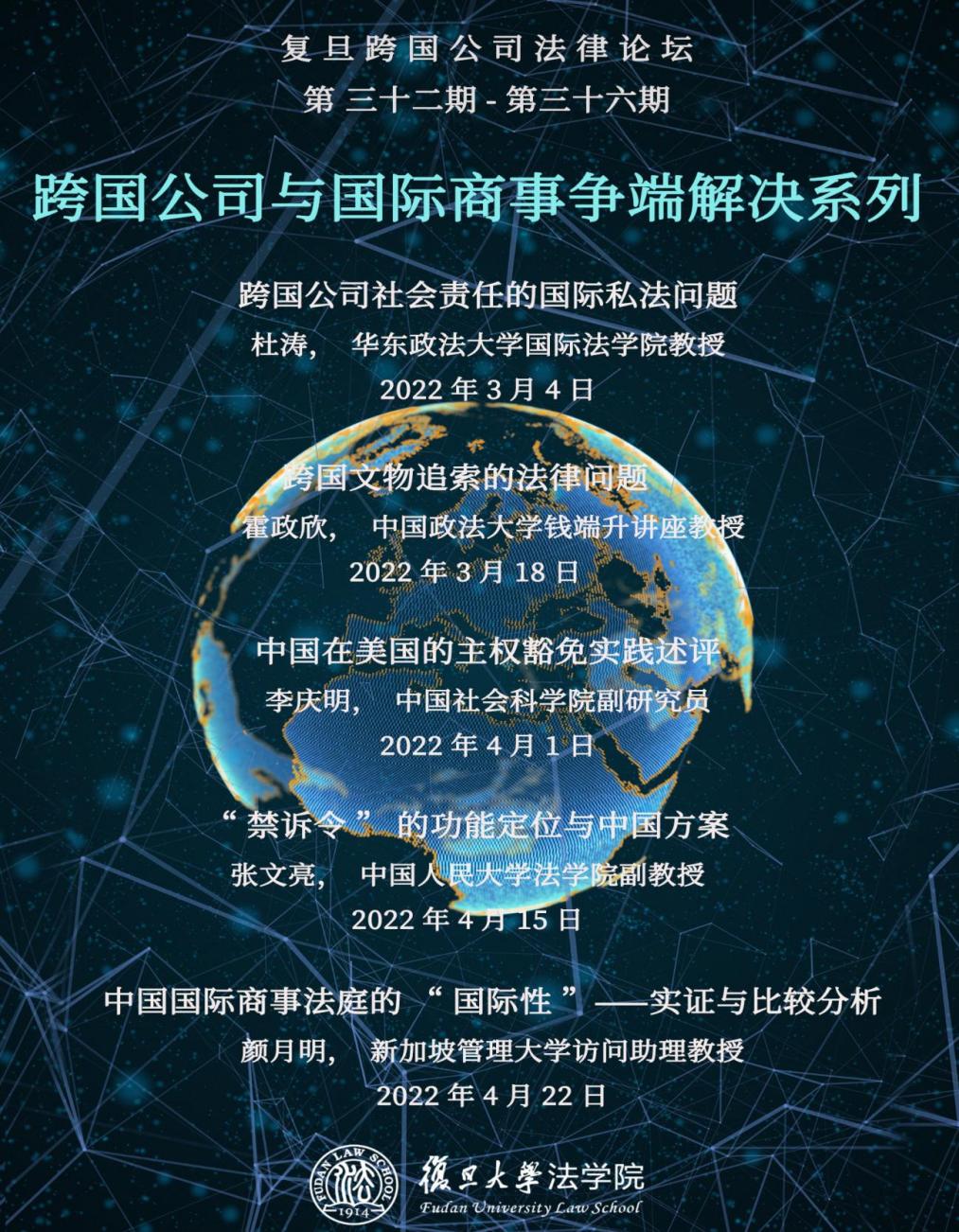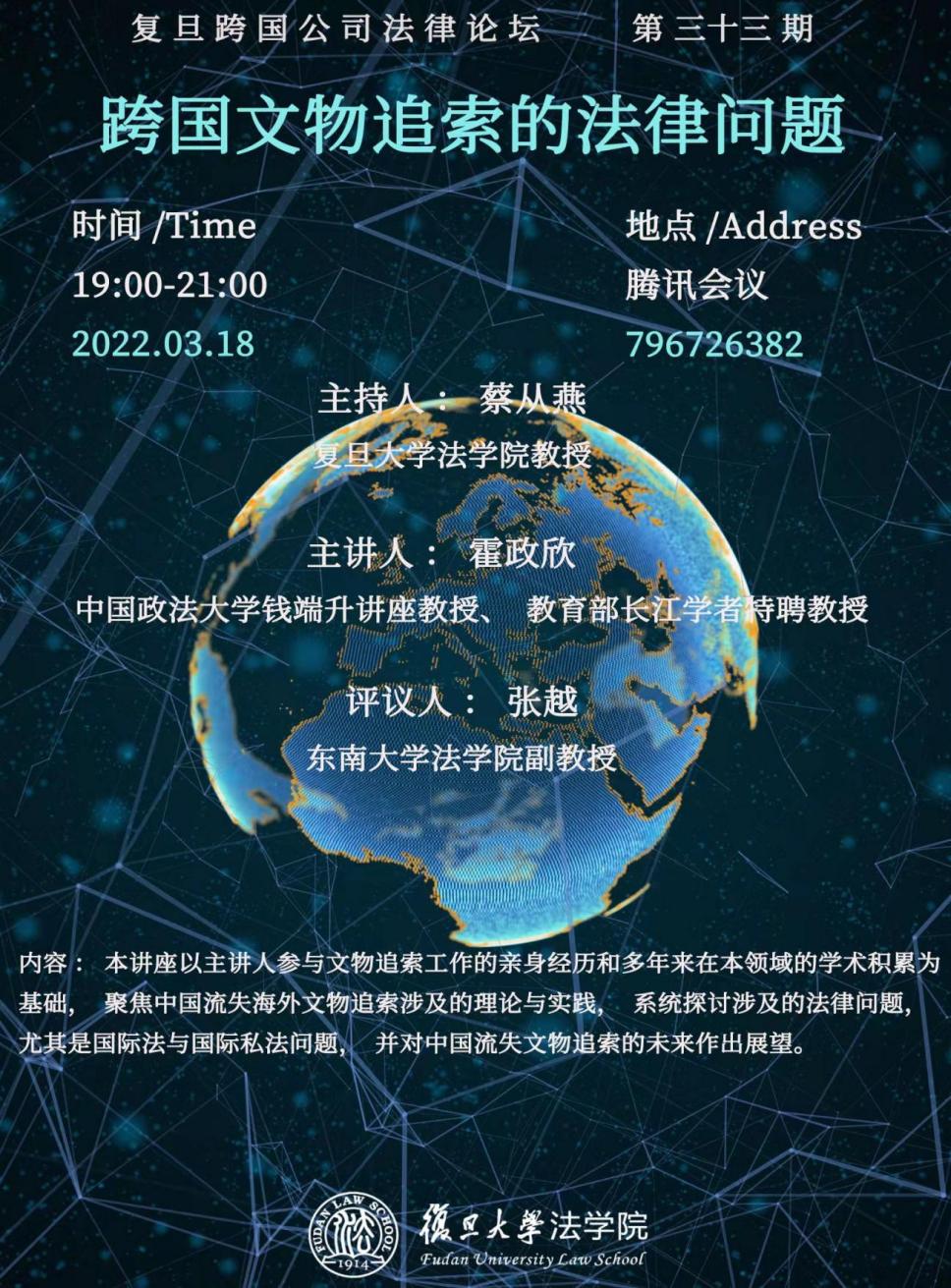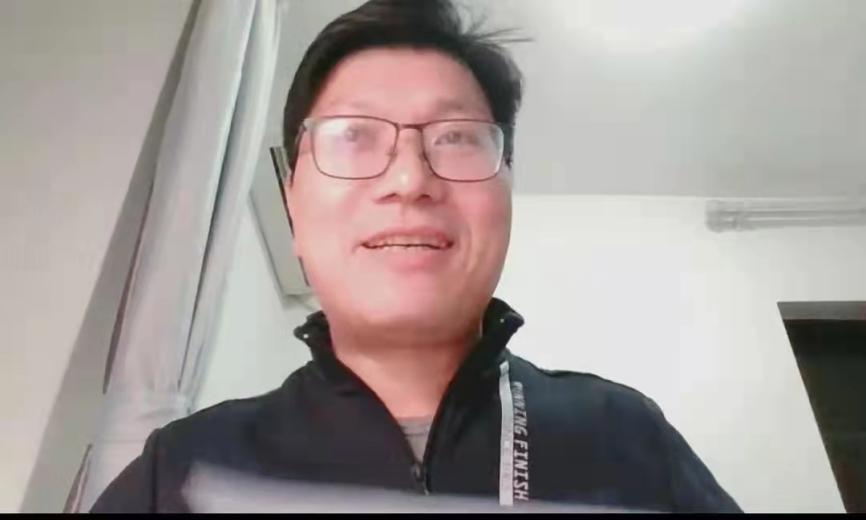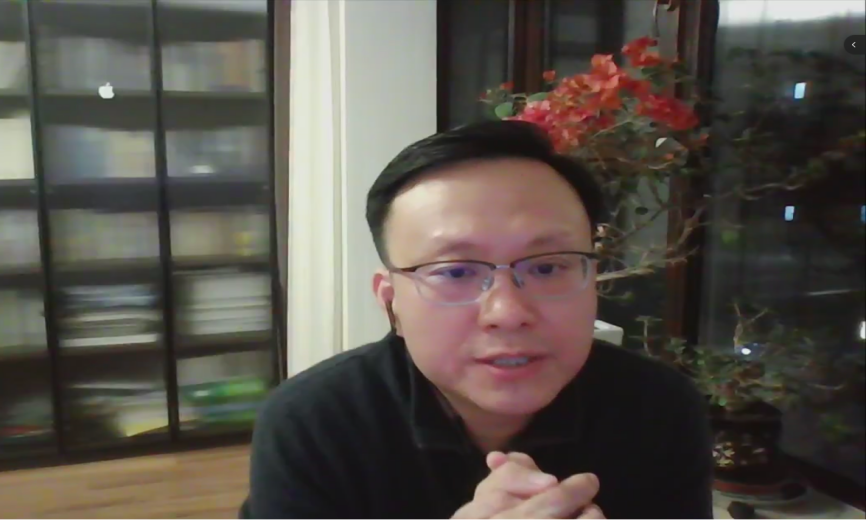


On March 18, 2022, the thirty-third keynote speech of the "Fudan Transnational Corporations and Law Forum" and the second episode of this Forum's special series of "TNCs and International Commercial Dispute Resolution" was held successfully online. The speech entitled "Legal Issues of Transnational Restitution of Art and Cultural Objects" was delivered byProfessor HUOZhengxin of China University of Political Science and Law, commented by Associate Professor ZHANG Yue of Southeast University Law School, and hosted by Professor CAI Congyan of Fudan University Law School.

Professor Huo started the speech with a general overview of cultural assets displaced from Modern China. In contemporary China, there are three peaks of the displacement of cultural assets in connection with the plunder by the colonial powers in the 19th century, the Second Sino-Japanese War, and the lack of regulation in the 1980s. Professor HUO underscored that the displacement of cultural assets implicates more than property disputes, entailing the loss of national heritage, especially given the unpresidential damages caused by the Japanese invasion and war atrocities to the Chinese culture. Therefore, he appealed for the legal academic and practical circles' increased attention to the legal issues arising from the restitution of cultural assets.
In light of the development of international conventions on the protection of art and cultural objects, Professor HUO proceeded to elaborate on the history, current status, and trend of development of the Convention on the Means of Prohibiting and Preventing the Illicit Import, Export and Transfer of Ownership of Cultural Property (UNESCO) adopted in 1970 and the Convention on Stolen or Illegally Exported Cultural Relics adopted in 1995. Professor HUO has accumulated a rich knowledge in tracking the implementation and enforcement of these conventions. Based on this, he provided a detailed analysis of the interpretation of key articles and the problems arising from their application in China.
Subsequently, Professor HUO revealed the legal issues involved in the return of displaced cultural assets from the perspective of international civil litigation by using the example of the case of a Buddhist monk mummy stolen from Fujian Province. From the perspective of private international law, transnational restitution litigation of lost art and cultural objects mainly involves issues of the following five aspects: jurisdiction, standing to sue, the application of law, the extraterritorial effects of foreign public law, and the recognition and enforcement of foreign judgment. Normally, to file a claim before a Chinese court for the restitution of displaced cultural assets from a foreign defendant would encounter a jurisdictional obstacle. What makes the Buddhist mummy case unusual is the Dutch defendant's voluntary acceptance of the jurisdiction of the Intermediate People's Court of Sanming City, Fujian Province.
Professor HUO pointed out that it is very difficult to overcome the hurdles of bona fide acquisition and prescription in cross-border litigation of the restitution of displaced cultural assets. Alternatively, other means to return and restitute cultural property to the countries of origin include donation, commercial repurchase, international legal enforcement cooperation, third-party good offices (ICPRCP), and negotiation. Among them, international legal enforcement proves to be effective and efficient. By far, China has signed bilateral treaties with 23 countries, especially with the United States.
Lastly, Professor HUO introduced several successful cases in which the displaced art and cultural objects were returned and restituted to China and the major progress in China's tracking and claiming for lost cultural assets. He considered that a country's inheritance is closely entangled with the inheritance of its culture and that the better promotion of our country's traditional culture demands stronger national strength.

In the commenting session, Professor ZHANG contributed views on the issues of jurisdiction, extraterritorial application of public law, and international legal enforcement involved in cross-border restitution of cultural assets. Meanwhile, she expressed concerns over "the potential second-time plunder in the process of commercial repurchase of lost art and cultural objects," "the declining influence of the UNESCO in urging for the return of looted cultural property in connection with wars," etc.
On April 1, 2022, the Forum will host the thirty-fourth keynote speech entitled "Reviewing the Practice of Sovereign Immunity in United States Courts" by Dr. LI Qingming, Associate Professor of the Chinese Academy of Social Sciences.






